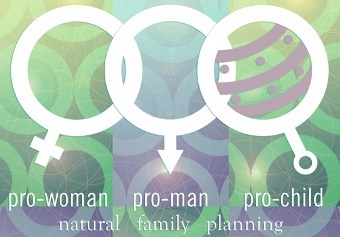Why does the Church teach that contraception is a sin?
The short answer is because contraception contradicts God’s plan for human love. Man and woman are made for each other, and those called to marriage as husband and wife are called to give themselves completely to each other and to receive each other as a gift. Sex is made for marriage, and it only speaks the full truth when reserved to marriage and when its meaning as a life-giving union is not deliberately thwarted. Contraception contradicts the meaning of sexual love in marriage by hindering the unitive and procreative dimensions of conjugal love inscribed by God himself.
When we look at the reality of sin and contemplate Original Sin and the Fall of Adam and Eve, sin can be described as an illusion: our way will obtain more freedom in life than God’s ways (Gn 3:1-7). The sad truth of this illusion is that, rather than obtaining the freedom sought, we actually become enslaved to sin (Jn 8:34; Rom 6:16). Like a loving mother, the Church understands humanity’s deep desire for love, life, freedom, and happiness, and she wants us to obtain those elements of human flourishing (CCC, no. 2030). She defines that which is in communion with God’s ways as the virtues, and that which is not in communion with God’s ways as sins.

Defining the difference between virtue and sin is a great act of mercy since, after the Fall, countless counterfeits to authentic human flourishing have multiplied with the help of the father of lies, Satan. With this understanding, contraception objectively is an illusion promising a false euphoric bliss of union between two people through the redefinition of God’s plan for sexuality. Yet because this redefinition of sexuality does not bring the union and happiness hoped for, but rather much pain and division in the end, the Church, in fidelity to God’s plan and the truth inscribed in the nature of the human person, defines that all deliberately sterilized sexual acts are a sin (CCC, no. 2370).
If NFP and contraception can both be used to regulate births, are they not the same?
NFP is not contraception—it does not frustrate, change, and sterilize the sexual (conjugal) act. Nor does it alter one’s body and hormones. Rather, NFP respects the dignity of each spouse and the dignity of the conjugal act, involving periodic abstinence and the virtue of self-control (regular aspects of any heathy marriage). In contrast to contraception, the benefits to practicing NFP are powerful and convincing: greater communication, tenderness, and long-term desire between the spouses, and greater self-mastery, generosity, and respect for God’s design for love and life overall. Naturally these virtues work together to decrease vastly the risk of divorce and preserve the permanency and indissolubility of marriage. Conversely, since the widespread use of contraception, the divorce rate has vastly increased and the marriage rate has dramatically decreased. Interestingly, this kind of moral decline was predicted by Pope St. Paul VI in his encyclical Humanae Vitae in 1968 (HV, no. 17).
Is NFP effective in spacing children?
Regarding the regulation of being gifted with a child, a number of studies have shown that a disciplined practice of Natural Family Planning has the same effectiveness rate as the typical use of many contraceptives.* However, since using NFP to avoid children is not a natural state of marriage and should only be used when serious reasons arise to avoid the blessing of life, NFP comparisons to contraceptive use are not adequate. NFP proves to be most effective in making spouses more loving and generous people as they deepen their understanding of the mystery of God’s design for love, life, and eternal joy. This will more than likely mean having more children than what is considered “normal” by current standards (or remaining open to other life-giving and nurturing service through adoption, foster care, and other forms of service), as NFP helps couples understand that the family is an icon of the eternal exchange of love found in the Trinity and that the nature of love is to create (CCC, no. 221). While contraception enables the radical individualism fostered by the current culture and destabilizes family life (even when many couples are unaware of its deleterious effects), practicing NFP enables the true understanding of freedom fostered by the Church and promotes true communion in this life and the next.
*See for example: Kambic, R – The Effectiveness of Natural Family Planning, Current Medical Research; Vol 11; Winter/Spring, 2000. Based on meta-analysis of 23 ovulation methods studies and 15 STM studies.
How does NFP promote health and physical well-being?
Since NFP works with the natural functions of the human body, there are no health risks in seeking to avoid or achieve a pregnancy. Additionally, advancements in medical science are revealing the physical benefits of observing the woman’s menstrual cycle as a vital sign. As a woman becomes aware of her normal fertility pattern, changes in this pattern alert her to potential medical problems. The health benefits associated with NFP are so advantageous that some women learn an NFP method purely for this reason.
In contrast, the high doses of hormones needed to produce sterility in a woman are unnatural and result in many negative side effects hazardous to her health. From weight gain and loss of libido to an increased risk for migraines, blood clots, and cancer, the human cost of artificial birth control is high. Also, high doses of hormones can act as an early abortion agent by affecting the lining of the uterus, preventing implantation of a newly conceived life.
Is NFP the Rhythm Method?
No. Many methods of NFP have developed by leading OB/GYNs from around the world for over the past 80 years to create some of the best fertility information in women’s health science.
How Does NFP Help Build A Marriage?
In faithful obedience to God’s plan and to the natural moral law, NFP allows a couple to experience “The Great Mystery” St. Paul mentions in the book of Ephesians: “‘For this reason a man shall leave his father and mother and be joined to his wife, and the two shall become one.’ This is a great mystery, and I mean in reference to Christ and the Church” (Eph 5:31-32, referencing Gen 2:24). In the same way the Church experiences deeper intimacy and unity with Christ in obedience to Him, a husband and wife gain a deeper intimacy and unity with one another if – and only if – their conjugal life respects God’s Laws, which always have our best interest in mind, since God is Love.
In practical daily life, through the necessary discussions of fertility, periodic abstinence, welcoming new life, and praying through these challenges, couples will experience not only the desire Christ has to be joined to His Bride, the Church, but also the bountiful positive fruits that accompany this intimacy. Naturally, NFP practicing couples experience greater communication, tenderness, and a virtually non-existent* divorce rate. This does not mean any couple will avoid the mystery of the Cross, but Jesus invites all of us to deny ourselves, take up our crosses, and follow Him, and He gives us the grace to do so.
*See for example: Elizabeta Wojcik. “Natural Regulation of Conception and Contraception,” International Review of NFP 9:4. Divorce rate of 0% in 1400 NFP using couples tracked over a 20 year period by Austrian doctor Josef Rotzer.

